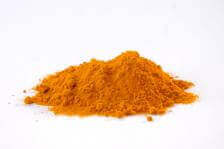Can Turmeric Prevent or Cure Disease?
In the Beginning...
But What Does it Do?
Conclusion
So now you know more about the wonderful properties of the spice turmeric and what most people believe to be its most important chemical component, curcumin.While the jury is still out on the long term effects of curcumin and how much is too much, there is no denying the fact that India has a considerably lower rate of both colorectal cancers and Alzheimer’s disease. Unfortunately, there isn’t an easy way to tell if this is due to diet, genetics, lifestyle, or a combination.
If you have a question that you’d like to see on a future episode, send me an email at everydayeinstein@quickanddirtytips.com. If you liked today’s episode, you can become a fan of Everyday Einstein on Facebook or follow me on Twitter, where I’m @QDTeinstein.
Turmeric image from Morguefile.com. Guinea pig image from Shutterstock.
So now you know more about the wonderful properties of the spice turmeric and what most people believe to be its most important chemical component, curcumin.While the jury is still out on the long term effects of curcumin and how much is too much, there is no denying the fact that India has a considerably lower rate of both colorectal cancers and Alzheimer’s disease. Unfortunately, there isn’t an easy way to tell if this is due to diet, genetics, lifestyle, or a combination.
If you have a question that you’d like to see on a future episode, send me an email at everydayeinstein@quickanddirtytips.com. If you liked today’s episode, you can become a fan of Everyday Einstein on Facebook or follow me on Twitter, where I’m @QDTeinstein.
Turmeric image from Morguefile.com. Guinea pig image from Shutterstock.

No comments:
Post a Comment